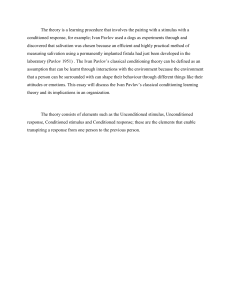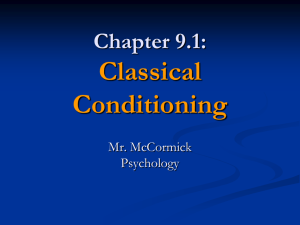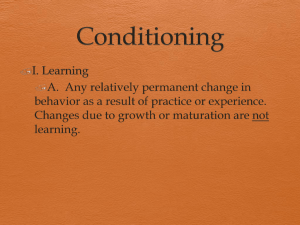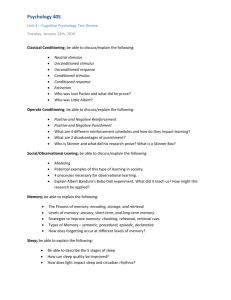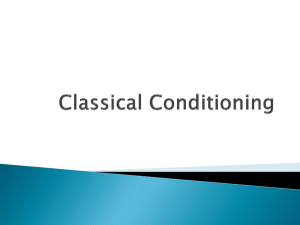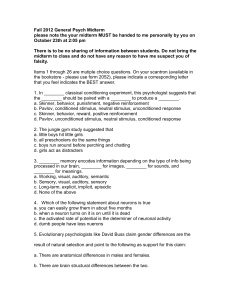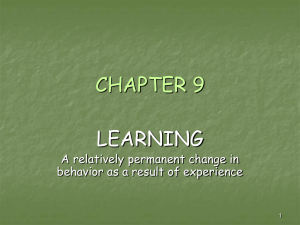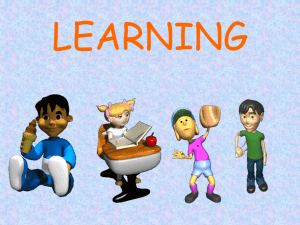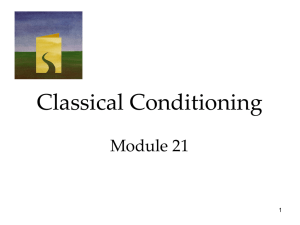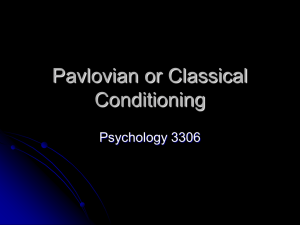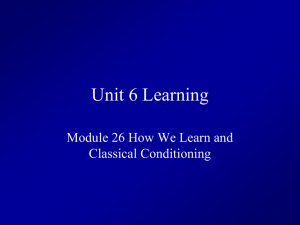GRQchapt6part1
advertisement
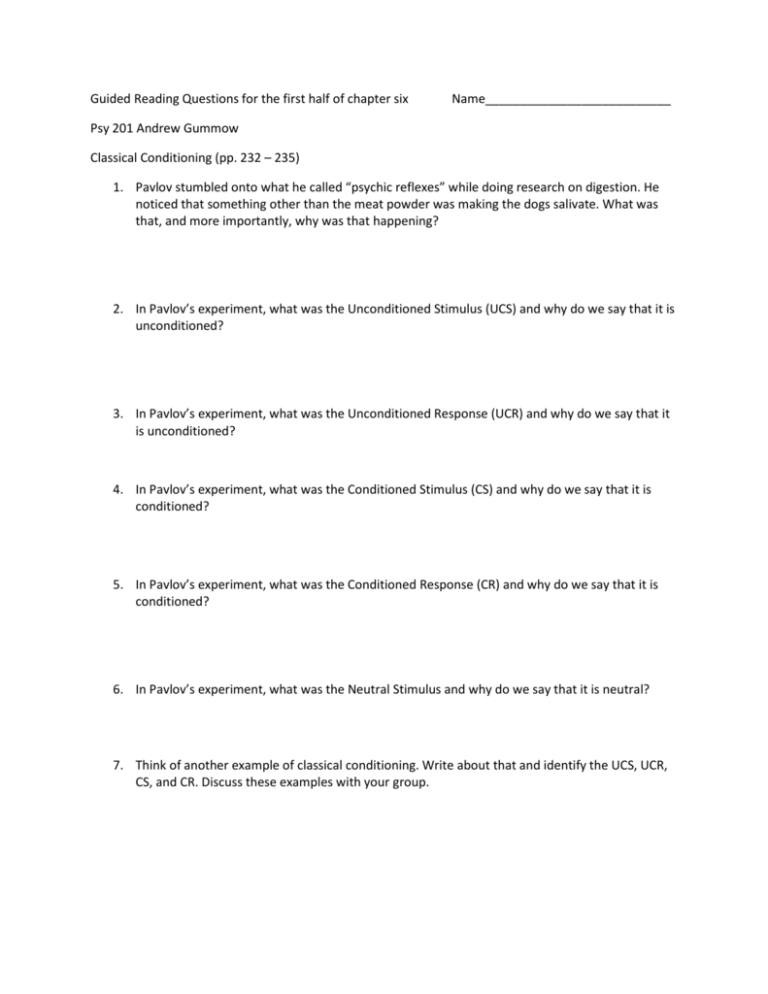
Guided Reading Questions for the first half of chapter six Name___________________________ Psy 201 Andrew Gummow Classical Conditioning (pp. 232 – 235) 1. Pavlov stumbled onto what he called “psychic reflexes” while doing research on digestion. He noticed that something other than the meat powder was making the dogs salivate. What was that, and more importantly, why was that happening? 2. In Pavlov’s experiment, what was the Unconditioned Stimulus (UCS) and why do we say that it is unconditioned? 3. In Pavlov’s experiment, what was the Unconditioned Response (UCR) and why do we say that it is unconditioned? 4. In Pavlov’s experiment, what was the Conditioned Stimulus (CS) and why do we say that it is conditioned? 5. In Pavlov’s experiment, what was the Conditioned Response (CR) and why do we say that it is conditioned? 6. In Pavlov’s experiment, what was the Neutral Stimulus and why do we say that it is neutral? 7. Think of another example of classical conditioning. Write about that and identify the UCS, UCR, CS, and CR. Discuss these examples with your group. 8. Read the story about the bridge phobia on p.235. How is this like “Little Albert’s” fear of rats (we watched a video of Little Albert on the first day of class)? 9. Does it seem plausible that many phobias are acquired through classical conditioning? Why, or why not? Stimulus Generalization and Stimulus Discrimination (pp.239 – 240) 10. How did Stimulus Generalization occur for Little Albert? What else do you think he would be afraid of? 11. No Stimulus Discrimination took place in the Little Albert Experiment. How do you think you could teach him to discriminate between the rat and the rabbit, so that he would not be afraid of the rabbit? Higher Order Conditioning (p. 240) 12. Read the section on Higher-Order Conditioning. Most of us have been conditioned to fear the sound of a dentist’s drill because we associate the sound with pain. Is there anything else in your dentist’s office that causes fear for you? How is this Higher-Order Conditioning?
